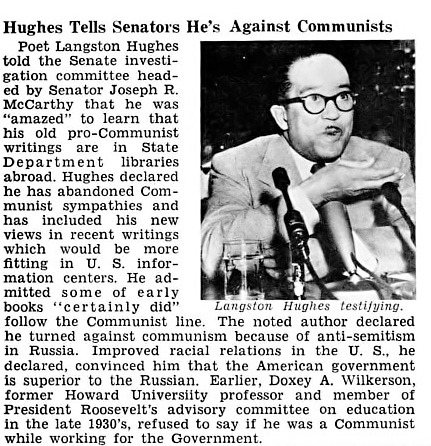Harry Belafonte’s Wikipedia page
says he was “blacklisted during the McCarthy era” …Yeah, that’s a lie. Bear in
mind, he was primarily a singer and stage performer who started his career in
1949.
1950
Signed with Jubilee Records.
1953
Debut at the jazz club the
Village Vanguard
(Stage) John Murray Anderson's
Almanac (Entire year)
(Film) Bright Road.(his first film)
Signed with RCA records
1954
(Musical album) "Mark
Twain" And Other Folk Favorites 1954 which reached the number three slot
on the Billboard charts
Wins a Tony Award for Best Actor
in a Featured Role - Musical for "John Murray Anderson's Almanac."
(Film) Carmen Jones
1955
(Stage) 3 for Tonight (Entire
year)
Empire Room of the Waldorf
Astoria Hotel
(TV) General Electric Theater
(TV) Front Row Center
1956
(Musical album) Calypso
(Single) Calypso (Sold over 2
million copies in three month)
(Musical album) Belafonte
The 28th Annual Academy Awards
(TV Special)
1957
(Musical album) Belafonte Sings Of
The Caribbean
(Musical album) An Evening With
Belafonte
(Musical album) The Versatile Mr.
Belafonte
(Recording single hit) Mary's Boy
Child
(Film) Island in the Sun.
1958
(Musical album) Harry Belafonte à
Paris
(Musical album) To Wish You A
Merry Christmas
(Musical album) Belafonte Sings
The Blues
The Steve Allen Show
1959
(Film) Odds Against Tomorrow
(co-producer)
(Film) The World, The Flesh and The Devil
(producer)
(Musical album) Belafonte At
Carnegie Hall (Best seller for three years)
(Musical album) Love Is A Gentle
Thing
(Musical album) Lena Horne /
Harry Belafonte - Porgy And Bess
(Musical album) Belafonte At
Carnegie Hall: The Complete Concert
(Musical album) Excerpts From The
Belafonte Carnegie Hall Concert
(TV Special) Tonight With
Belafonte
(Stage) Moonbirds (Star and producer)
(Stage) Belafonte at the Palace
(Broadway) Belafonte at the
Palace (Dec 15, 1959 - Mar 1960)



